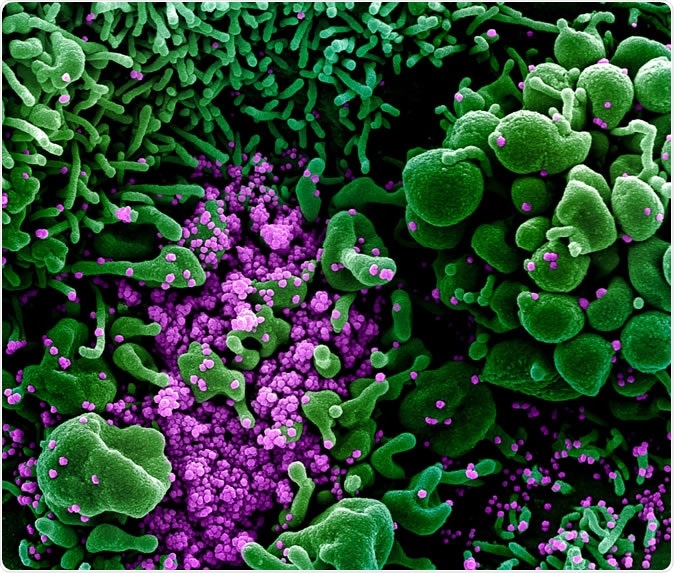Evidence shows that coronavirus disease (COVID-19) most often affects older adults, who are 60 years old or more, and those with underlying medical conditions. But a new study has shown that several children in China had developed severe or critical conditions, with one child dying from COVID-19.
The World Health Organization (WHO) urged parents to protect their children against the coronavirus that is now running rampant across the globe. The global pandemic has reached 157 countries, infecting 242,092 people and killing 9,842.
In a new study published in the journal Pediatrics, researches studied a group of 2,143 cases of children with suspected or confirmed COVID-19, which were reported by the Chinese Centers for Disease Control and Prevention between Jan. 16 and Feb. 8.
They found that more than 90 percent of the cases in children had no symptoms, or with mild or moderate illness. However, approximately 6 percent of the coronavirus cases in children were severe or critical. In comparison, 18.5 percent were critical in adults.
Mild cases, which are 52 percent of the participants, had symptoms most often seen in children with flu, including fever, sore throat, fatigue, and cough. Some mild cases had digestive symptoms such as diarrhea, vomiting, and abdominal pain.
Moderate cases, which account for 39 percent of all cases, led to pneumonia, causing fever and cough. However, in these cases, children do not experience shortness of breath. In severe cases, which accounts for 5 percent of the sample, had severe respiratory problems. Some of the severe cases progressed to severe conditions, requiring critical care.

Novel Coronavirus SARS-CoV-2 Colorized scanning electron micrograph of an apoptotic cell (green) heavily infected with SARS-COV-2 virus particles (purple), isolated from a patient sample. Image captured and color-enhanced at the NIAID Integrated Research Facility (IRF) in Fort Detrick, Maryland. Credit: NIAID
Under-five are most at-risk
The study also revealed that though the coronavirus seems to mostly be sparing children, of the few children who do develop severe illness, those who are below five years old are the most at-risk. Infants below one year of age are at the greatest danger.
The study authors also unveiled that 13 percent of confirmed cases had no symptoms, which raises concern since most asymptomatic children are unlikely to be tested. These children can transmit the virus to other people without them knowing it. Also, of the children with symptoms, 5 percent had a difficulty of breathing or low oxygen levels, and 0.6 percent progressed to acute respiratory distress syndrome (ARDS) or multiorgan system dysfunction, which is lower than in adults.
Younger children, such as preschoolers, toddlers, and infants, are more likely to have severe manifestations or symptoms that older children.
The U.S. Centers for Disease Control and Prevention (CDC) said that based on available evidence, children do not appear to be at higher risk of COVID-19 than adults. When they get sick, they usually experience mild to moderate disease.
How to protect children against COVID-19?
Across the globe, many parents are confused about their children playing with others or socializing with friends. In some countries, strict restrictions are in place, wherein all schools are canceled, with children advised to remain indoors at home.
Social distancing is now recognized to be crucial as a preventative measure. This applies to everyone, including children. Schools have been suspended for a reason, and that is to isolate children from others outside who might be carriers of the virus. Though children are at low risk of getting a severe disease from COVID-19, they are potent transmitters of the virus. They are mobile and active, running everywhere. Teens, on the other hand, tend to spend time with friends or go out.
To protect the children from acquiring the disease or infection, parents should encourage their children to clean their hands using soap and water or alcohol-based hand sanitizer. Children should avoid people who are coughing or sneezing, while the house should be disinfected regularly. Clean surfaces in the common areas of the house, such as doorknobs, light switches, handles, remotes, desks, tables, and toiler sinks.
For children, toys should also be disinfected. Launder items such as plush toys and clean items with water and disinfectants. Do not allow children to go out in public, avoid parties, gatherings, and family dinners.
Sources:
- U.S. Centers for Disease Control and Prevention (CDC). (2020). https://www.cdc.gov/
- Dong, Y., Mo, X., Hu, Y., Qi, X., Jiang, F., Jiang, Z., and Tong, S. (2020). Epidemiological Characteristics of 2143 Pediatric Patients With 2019 Coronavirus Disease in China. Pediatrics. https://pediatrics.aappublications.org/content/early/2020/03/16/peds.2020-0702
- Coronavirus: Should you let your children play with other children? - https://www.bbc.com/news/world-us-canada-51938537
- Coronavirus COVID-19 Global Cases by the Center for Systems Science and Engineering (CSSE) at Johns Hopkins University (JHU) - https://gisanddata.maps.arcgis.com/apps/opsdashboard/index.html#/bda7594740fd40299423467b48e9ecf6